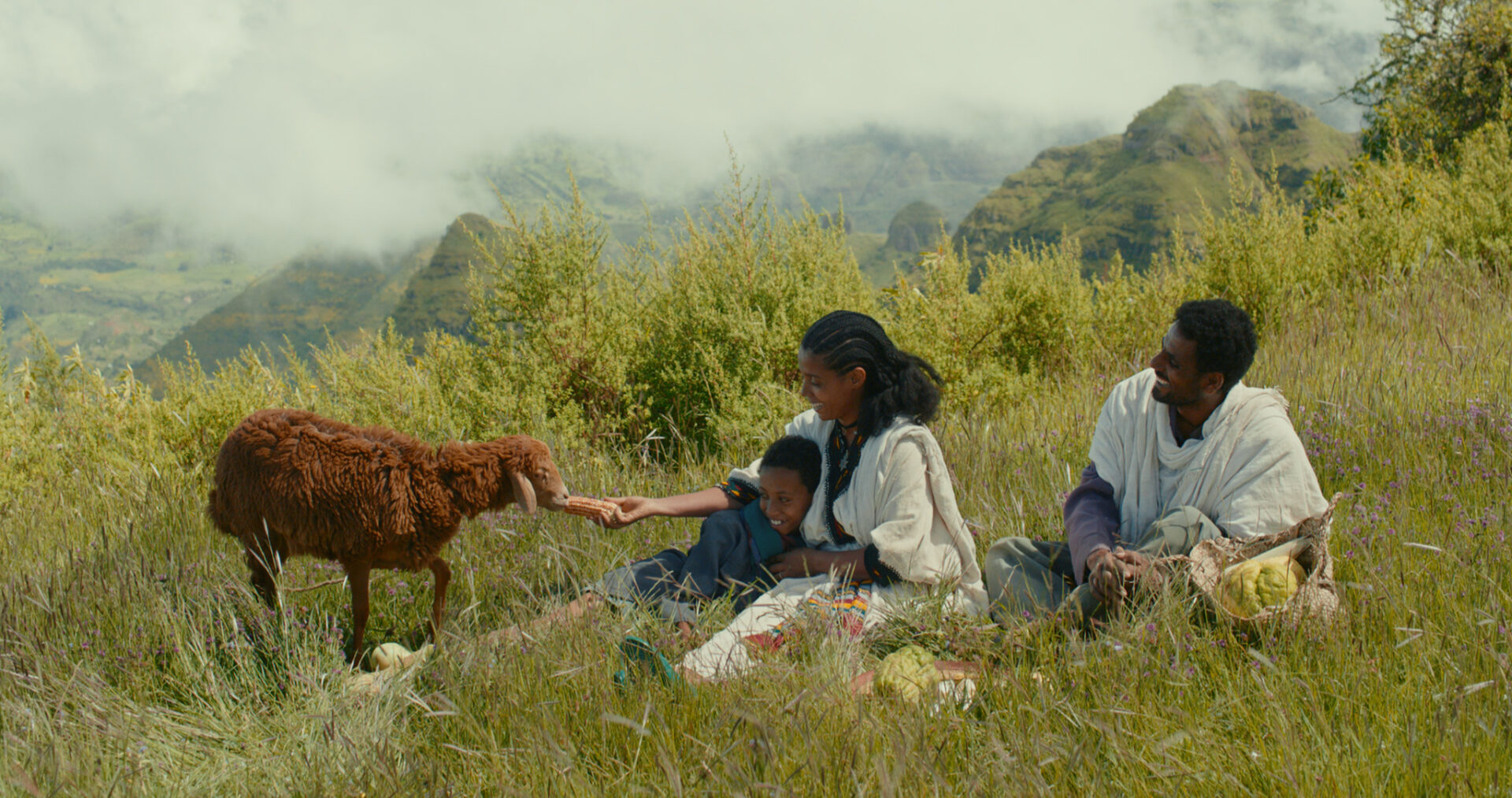
Yared Zeleke’s sharp eye for the culture of his homeland is showcased in this tremendous ethnographic debut
Lamb is a 2015 Ethiopian drama film directed by Yared Zeleke. It was screened in the Un Certain Regard section at the 2015 Cannes Film Festival. It was the first Ethiopian film to be included in the Official Selection. It was screened in the Contemporary World Cinema section of the 2015 Toronto International Film Festival. The film was selected as the Ethiopian entry for the Best Foreign Language Film at the 88th Academy Awards
The first image in Lamb is a closeup of a small boy’s hand laying gently on the thick, auburn wool of of a sheep. It may be a one-sided relationship – it’s hard to get inside the head of livestock – but Ephraim (Rediat Amare) clearly loves this animal. He lives in a small village in Ethiopia with his father, an area troubled by drought. His mother has recently passed away and his father has decided that he will take the boy to live with cousins in a farmland area with rolling green hills while he goes to Addis Ababa looking for work.
The new family consists of a loving but all-business great aunt who keeps a whip by her side for occasional discipline, a stern uncle, an aunt concerned with her sick daughter, and another daughter who is past marrying age but seems more interested in reading newspapers than getting hitched and having children.

What’s most exciting about Lamb, the first Ethiopian film to play at Cannes (it appears in the Un Certain Regard section), is that it is an ethnographic film made entirely from the inside out. First-time feature director Yared Zeleke attended New York University’s film school, but grew up in Ethiopia’s urban slums during some of its most troubled years. While we’re following Ephraim into a new environment, there’s little explaining done for our benefit. We’re dropped in and left to figure it out for ourselves.

The family are subsistence farmers, and just barely getting by. They have no electricity or gadgets or western clothing. What they have instead are plenty of customs, like putting on an exaggerated show of mourning when Ephraim first arrives, and preparing for a forthcoming Christian feast. It is decided that Ephraim’s sheep will be slaughtered for this holiday, setting up something of a ticking clock. Heading down to the small marketplace, where car radios blaze with music familiar to fans of the Éthiopiques compilation , Ephraim scopes out a bus ticket. He isn’t sure if he wants to go to the city to find his father or to return to his old village. He knows he can’t stay here, though, with the local bully kids, an unsympathetic uncle and a sword looming over his beloved pet’s head.
To earn money, he starts cooking and selling samosas, but his uncle does not like the idea of him cooking – it is woman’s work. Cooking reminds Ephraim of his late mother, who taught him what look like some delicious tricks, and while the aunts don’t exactly encourage him to cook, they can’t deny he’s got the knack.

Much of Lamb’s run time is spent simply absorbing the culture, and Zeleke has a really sharp eye. Amid the gorgeous landscapes (shot by Josée Deshaies, the recent cinematographer of the lush Saint Laurent), we watch the family as they farm and celebrate, living a lifestyle far removed than one lived in the West. Their homes have dirt floors, they lack electricity, they cook over a small indoor flame. A stray reference is made to Ephraim’s mother being Jewish, and there’s a lovely scene with Ephraim and a small Muslim girl. There’s no suggestion of religious strife – their problems (and there are always problems) emerge from the general state of poverty.
Zeleke is clearly inspired by arthouse classics like Satyajit Ray’s Pather Panchaliand, owing to the animal aspect, the Italian neorrealist classic Umberto D. This may make Lamb seem a little bit like old news in terms of the development of world cinema, but I’m ready to let it slide considering the fascinating particulars of this setting. It’s bittersweet, to be sure, but Lamb would also work as a film to show your children – it might allow them an emotional connection to ways of life so rarely explored on film.


